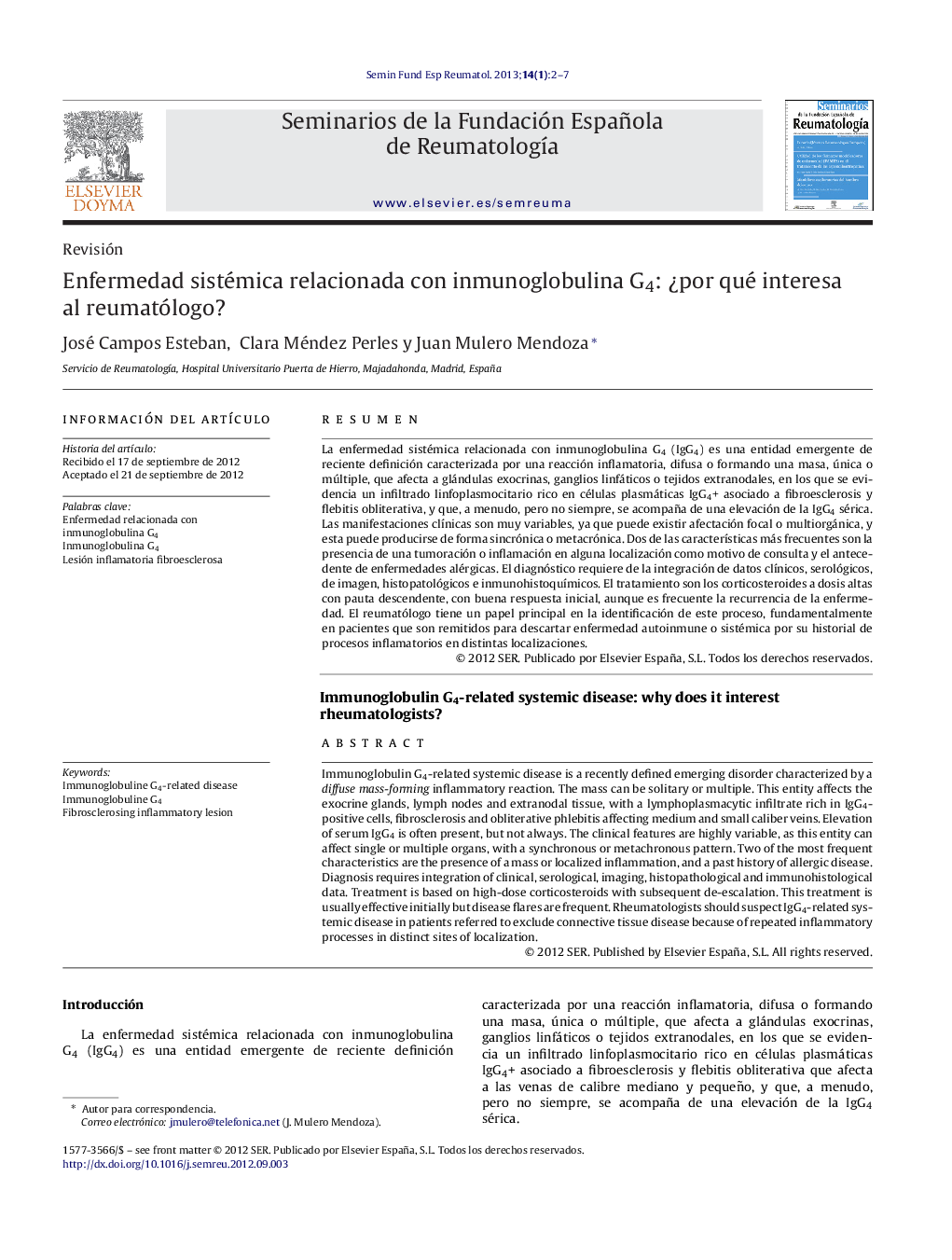| Article ID | Journal | Published Year | Pages | File Type |
|---|---|---|---|---|
| 3391020 | Seminarios de la Fundación Española de Reumatología | 2013 | 6 Pages |
Abstract
Immunoglobulin G4-related systemic disease is a recently defined emerging disorder characterized by a diffuse mass-forming inflammatory reaction. The mass can be solitary or multiple. This entity affects the exocrine glands, lymph nodes and extranodal tissue, with a lymphoplasmacytic infiltrate rich in IgG4-positive cells, fibrosclerosis and obliterative phlebitis affecting medium and small caliber veins. Elevation of serum IgG4 is often present, but not always. The clinical features are highly variable, as this entity can affect single or multiple organs, with a synchronous or metachronous pattern. Two of the most frequent characteristics are the presence of a mass or localized inflammation, and a past history of allergic disease. Diagnosis requires integration of clinical, serological, imaging, histopathological and immunohistological data. Treatment is based on high-dose corticosteroids with subsequent de-escalation. This treatment is usually effective initially but disease flares are frequent. Rheumatologists should suspect IgG4-related systemic disease in patients referred to exclude connective tissue disease because of repeated inflammatory processes in distinct sites of localization.
Keywords
Related Topics
Health Sciences
Medicine and Dentistry
Immunology, Allergology and Rheumatology
Authors
José Campos Esteban, Clara Méndez Perles, Juan Mulero Mendoza,
